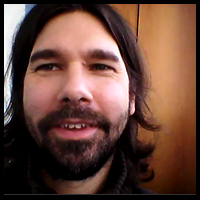Meldinger: 8
Språk: English
harlandski (Å vise profilen) 2016 1 19 11:53:50
Kapuĉino
Espreso
Mokao - Mocha, though it seems to be the actual coffee, not the mixture with chocolate
But how to say latte? Lakta kafo? Latao?
Or mocha as in the chocolate mix. Ĉokolata kafo?
Any ideas about other more unusual kinds of coffee?
erinja (Å vise profilen) 2016 1 19 17:03:29
Chocolate is cxokolado with a D, by the way.
I would say "kafo kun cxokolado" for coffee with chocolate. This is in line with how coffee drinks are named in Romance languages: "cafe au lait", "cafe con leche", "cafe com leite", etc.
As far as the latte, it's caffe latte or caffelatte in Italian. You could easily go with "laktokafo" in line with that, or "kafo kun lakto" in line with other Romance languages (French, Spanish, and Portuguese all follow something more like that second model). Lakta kafo would be more like "milky coffee" and to me that would not be my favorite choice, it implies something else to my ear, ordinary coffee that is milky, versus a special name for a specific beverage.
Latao would be the least preferable choice of all of those. No one would know what you were talking about. Even in Italian, the word "latte" would always be accompanied by caffe (if you go to an Italian cafe and ask for a "latte", you would probably be looked at strangely and then served a glass of milk). We can only use "latte" as a stand-alone word in English because the word itself means nothing in English other than a coffee beverage.
Vestitor (Å vise profilen) 2016 1 19 17:12:15
erinja:Mocha doesn't mean coffee with chocolate in most places in the world, so Esperanto is in line with that.Which places exactly? If this is about coffee drinks, it does refer to coffee mixed with chocolate. Mocha, as referring to the specific bean, would hardly be included in a list of common coffee drinks.
nornen (Å vise profilen) 2016 1 19 17:22:40
Vestitor:Is it possible that the Eo term "mokao" refers to what the Italians call "caffè turco" (although المخا is in Yemen and not in Turkey), while the English term "mocha" is what the Italians call "mocaccino"?erinja:Mocha doesn't mean coffee with chocolate in most places in the world, so Esperanto is in line with that.Which places exactly? If this is about coffee drinks, it does refer to coffee mixed with chocolate. Mocha, as referring to the specific bean, would hardly be included in a list of common coffee drinks.
marcley93 (Å vise profilen) 2016 1 19 18:34:57
Vestitor:To me, "kafo kun lakto" means that I want some milk added to my coffee (as opposed to drinking is black). "Laktokafo" sounds like the best Esperanto name for "latte". And "mokaĉino" would be the best Esperanto term for "mocha" because the Italians call mocha "mocaccino".erinja:Mocha doesn't mean coffee with chocolate in most places in the world, so Esperanto is in line with that.Which places exactly? If this is about coffee drinks, it does refer to coffee mixed with chocolate. Mocha, as referring to the specific bean, would hardly be included in a list of common coffee drinks.
Miland (Å vise profilen) 2016 1 22 08:19:55
erinja (Å vise profilen) 2016 1 22 16:50:42
Vestitor:Perhaps I don't frequent the right kinds of coffee houses. I basically never saw it in Italy, or if I saw a coffee/chocolate drink, it was a "marocchino" (from the Italian word for Morocco, not based on mocha), and I saw such a name elsewhere in Europe as well. Perhaps I only went to the Italian-run cafes in Europe, such as those run by Illy.erinja:Mocha doesn't mean coffee with chocolate in most places in the world, so Esperanto is in line with that.Which places exactly? If this is about coffee drinks, it does refer to coffee mixed with chocolate. Mocha, as referring to the specific bean, would hardly be included in a list of common coffee drinks.
Miland:We'll have to wait and see which names catch on for types of coffee in popular usage, whether kapuĉina/o, espresa/o, moĉa/o or, who knows, latea/o.Since no one pronounces "mocha" with a cx sound, I think "mocxao" would be totally unrecognizable. Not sure why the -a ended up in your roots, a latte never has an a, nor does an espresso or a cappuccino.
Miland (Å vise profilen) 2016 1 22 22:42:33
erinja:The reason I used -a was that some people might prefer X-a kafo to X-o. But time will tell.Miland:We'll have to wait and see ..Since no one pronounces "mocha" with a cx sound, I think "mocxao" would be totally unrecognizable. Not sure why the -a ended up in your roots, a latte never has an a, nor does an espresso or a cappuccino.




